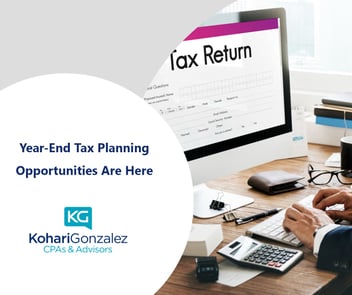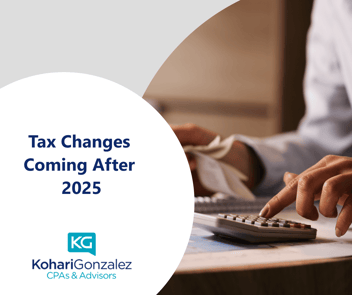
Article Highlights:
- Draft List of Occupations:
1. Beverage & Food Service
2. Entertainment and Events
3. Hospitality and Guest Services
4. Home Services
5. Personal Services
6. Personal Appearance and Wellness
7. Recreation and Instruction
8. Transportation and Delivery
- Eligibility Requirements
- Deduction Limitations
- Other Considerations
On September 2, 2025, the Treasury Department issued a draft list of 68 occupations that are eligible for the new "no tax on tips" deduction. This deduction is part of the "One Big Beautiful Bill Act," which was signed into law on July 4, 2025, and applies to federal income taxes for the tax years 2025-2028.
The deduction applies to a maximum of $25,000 in qualified tips per individual, per year. It is designed as a "below-the-line" deduction, which means it is accessible to taxpayers who claim the standard deduction but is not utilized to calculate adjusted gross income (AGI).
Here's the Treasury's proposed list of vocations.
Beverage & Food Service:
- Bartenders
- Wait staff
- Food servers, non-restaurant
- Dining room and cafeteria attendants and bartender helpers
- Chefs and cooks
- Food preparation workers
- Fast Food and Counter Workers
- Dishwashers
- Host staff, restaurant, lounge, and coffee shop
- Bakers
Entertainment and Events:
- Gambling dealers
- Gambling change persons and booth cashiers
- Gambling cage workers
- Gambling and sports book writers and runners
- Dancers
- Musicians and singers
- Disc jockeys (except radio)
- Entertainers and performers
- Digital content creators
- Ushers, lobby attendants and ticket takers
- Locker room, coatroom and dressing room attendants
Hospitality and Guest Services:
- Baggage porters and bellhops
- Concierges
- Hotel, motel and resort desk clerks
- Maids and housekeeping cleaners
Home Services
- Home maintenance and repair workers
- Home landscaping and groundskeeping workers
- Home electricians
- Home plumbers
- Home heating/air conditioning mechanics and installers
- Home appliance installers and repairers
- Home cleaning service workers
- Locksmiths
- Roadside assistance workers
Personal Services
- Personal care and service workers
- Private event planners
- Private event and portrait photographers
- Private event videographers
- Event officiants
- Pet caretakers
- Tutors
- Nannies and babysitters
Personal Appearance and Wellness
- Skincare specialists
- Massage therapists
- Barbers, hairdressers, hairstylists and cosmetologists
- Shampooers
- Manicurists and pedicurists
- Eyebrow threading and waxing technicians
- Makeup artists
- Exercise trainers and group fitness instructors
- Tattoo artists and piercers
- Tailors
- Shoe and leather workers and repairers
Recreation and Instruction
- Golf caddies
- Self-enrichment teachers
- Recreational and tour pilots
- Tour guides and escorts
- Travel guides
- Sports and recreation instructors
Transportation and Delivery:
- Parking and valet attendants
- Taxi and rideshare drivers and chauffeurs
- Shuttle drivers
- Goods delivery people
- Personal vehicle and equipment cleaners
- Private and charter bus drivers
- Water taxi operators and charter boat workers
- Rickshaw, pedicab, and carriage drivers
- Home movers
The OBBB tip exclusion criteria are a set of temporary tax deductions for qualified tipped workers that are valid from 2025 to 2028. The deduction is collected from an individual's tax return and is subject to income limits.
Eligibility Requirements: To qualify for the deduction, a worker must meet the following criteria:
- To qualify as a tipped worker, you must be an employee or independent contractor in an occupation that routinely receives gratuities before 2025. Please see the draft list of qualified occupations.
- Qualified tips: Customers must freely pay them. This includes tips paid in cash, charged to a credit card, or derived from a tip-sharing arrangement. Mandatory service charges are ineligible.
- Report tips to the IRS on Form W-2 (for employees) or Form 1099 (for independent contractors).
- Married couples must submit a joint tax return to claim deductions.
- To claim the deduction, individuals must provide their Social Security Number (SSN) on their tax returns.
Deduction Limitations: The maximum deduction is limited and phased off for high-income earners.
- Maximum annual deduction: $25,000.
- Income phase-out: The deduction is gradually reduced for taxpayers with a modified adjusted gross income (MAGI) above a specific amount.
For single filers with MAGI above $150,000, the deduction gradually decreases.
For married couples filing jointly, the deduction is phased down after their MAGI exceeds $300,000.
Other Considerations:
- Does not apply to payroll taxes: While tips are deducted from federal income tax, they are still subject to Social Security and Medicare taxes, or self-employment tax for independent contractors.
- The tip deduction is a temporary measure that will expire after December 31, 2028.
- Not tax-free: This is a deduction, not an exemption. So, the worker must still record all tip revenue, which will be reduced by the deduction amount.
- State tax implications: The impact on state income taxes depends on the worker's state tax legislation.
To summarize, recognizing which occupations are eligible for tip deductions is critical for both employees and businesses looking to optimize their tax benefits. Individuals can assure compliance while improving their tax strategies by staying up to date on the exact criteria that constitute qualifying tips and understanding how different occupations fit into the framework. As tax regulations evolve, stakeholders must stay up to date on legislative changes and seek professional guidance when necessary to efficiently negotiate the complexity of tip income and deductions.
Contact this office if you have any queries or need assistance.



